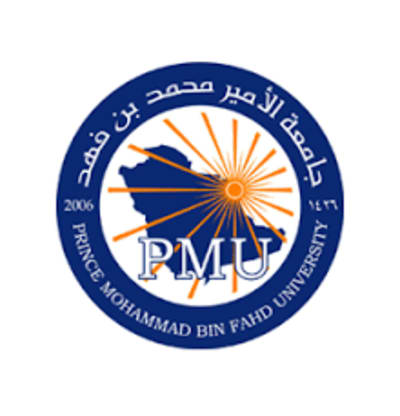
Executive MBA Program (EMBA)
Prince Mohammad Bin Fahd University

Key Information
Campus location
Dhahran, Saudi Arabia
Languages
English
Study format
On-Campus
Duration
Request info
Pace
Full time, Part time
Tuition fees
SAR 120,000 / per year
Application deadline
Request info
Earliest start date
Request info
Scholarships
Explore scholarship opportunities to help fund your studies
Introduction

About Executive MBA Program
Executive MBA programs are designed for full-time employees of organizations or owners of businesses who have a significant investment in their careers and who cannot afford to give up their full-time jobs. Rather than pursuing a traditional MBA degree on a part-time basis, these professionals can complete an Executive MBA program while continuing their full-time employment.
Executive MBA programs differ from traditional MBA programs in two distinct manners. First, the meeting format is different. Executive MBA programs usually meet twice a week, every other week during the semester. Secondly, the students in Executive MBA programs have on average much more work experience than their counterparts in traditional programs. It is this work experience that allows the Executive MBA program to be offered at a much faster pace than the traditional program.
Executive MBA programs typically are offered in major cities that have substantial workforces demanding such programs. Executive MBA programs also tend to draw from a region surrounding these cities (defined as within easy commuting distance). Because students must balance the demands of their careers, home life, and the full-time Executive MBA program, they do not want to spend an inordinate amount of time commuting to the program.
Most Executive MBA programs offer the MBA degree upon successful completion of the course of study. Students and their organizations want that credential and view an Executive MBA degree as less desirable. A major challenge to the administration of the program is to avoid the perception that the Executive MBA program is a “watered down” MBA program. The standards and content for the Executive MBA program, therefore, must be the same as a traditional MBA program. The expectations for the students in the Executive MBA program should, in fact, be higher than expectations for students in the traditional program because of the work experience of the participants.
Organizations use the Executive MBA programs as a way to update their employees on the latest thinking in business. The program may also be part of the career development of the person and the succession planning for the organization. It can be a tool used to promote retention of valued employees within the firm.
Why Executive MBA Program
The PMU Executive MBA program is an MBA program designed for working professionals. These professionals have significant work experience after the undergraduate degree and will come from diverse educational backgrounds. The program is a significant part of the PMU’s mission to provide connections with and services to the surrounding business community in the Eastern Province of the Kingdom of Saudi Arabia (KSA)
As it makes this vision a reality, the PMU Executive MBA program normally enrolled about 70%, non-business undergraduate majors. All participants will have advanced to a point in their careers where an understanding of business concepts is essential to job performance and career advancement.
The program is structured so that participants can complete the program in two years while maintaining their full-time professional work responsibilities. All participants in the program will be full-time employees of organizations or will be self-employed in their own, established businesses.
The PMU Executive MBA program is a general management program. It will not present in-depth coverage of any of the traditional functional business areas. The goal of the program is to create the general understanding of business required of a general manager.
Program Characteristics
- Each entering class must consist of approximately 30 program participants.
- Both male and female students shall be enrolled in the program.
- Instruction must be in the English language.
- The program should house physically and administratively within the College of Business Administration.
- The classroom environment should encourage discussion among the participants and the sharing of their business experiences.
- The PMU Executive MBA program should become one of the leading providers of Executive MBA education in the region.
Performance Expectations
Most Executive MBA programs offer the MBA degree upon successful completion of the course of study. Students and their organizations want that credential and view an Executive MBA degree as less desirable. A major challenge to the administration of the program is to avoid the perception that the Executive MBA program is a “watered down” MBA program. The standards and content for the Executive MBA program, therefore, must be the same as a traditional MBA program. The expectations for the students in the Executive MBA program should, in fact, be higher than expectations for students in the traditional program because of the work experience of the participants.
Program Objectives
- To generate an awareness of the issues of doing business internationally and of competing in a global economy.
- To foster teamwork and leadership in the business environment.
- To develop and enhance business and organizational skills that are applicable to a wide range of organizations.
- To present and enhance skills in the use of information technologies to assist in the management of organizations.
- To enhance the business communication skills of the participants.
Student Outcomes
Program Duration
The Program is designed to be completed in 24 months. Lectures and classes are conveniently paced and are conducted in seventeen modules of nine or eleven days each. This enables the participants to be away from their jobs for only a minimum period of time.
Credit Hours
The Program consists of 80 European Credit Transfer System (ECTS) that stands for:
- One credit corresponds to 8 teaching hours (at 60 minutes per lecture hour).
- Total study hours including teaching hours, examinations, assignment, and all study hours.
The segments are:
- Foundation Segment: 15 ECTS credits (5 courses @3 ECTS credits each course).
- Integration Segment: 33 ECTS credits (8 courses @ 4 ECTS credits each course and 1 workshop @ 1 ECTS credit).
- Focus Segment: 12 ECTS credit ( 4 courses @ 3 ECTS credits each course)
- Master Thesis: 20 ECTS credits
Note: 80 ECTS equivalent to 45 credits at PMU.
In the continuous effort to improve their programs, PMU reserve the right to change the title and contents of a course due to evolving market trends.